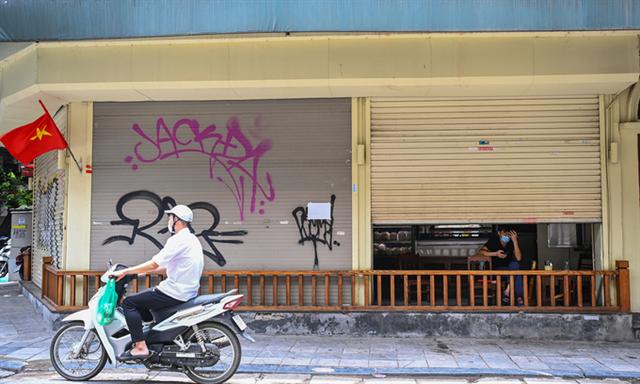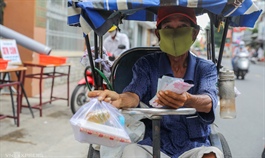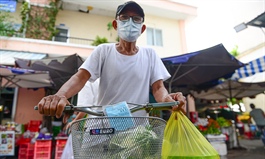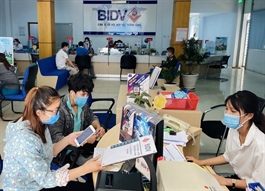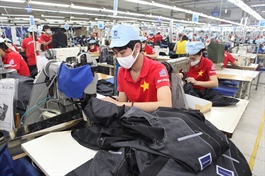Businesses unhappy with lukewarm bank debt restructuring
Businesses unhappy with lukewarm bank debt restructuring
A maximum debt rollover of 12 months is not enough for businesses since they expect to take years to recover from the impacts of Covid-19.
A motorbike driver passed by a coffee shop that only sells takeaways amid the Covid-19 pandemic in Hanoi on May 25, 2021. Photo by VnExpress/Giang Huy.
|
Dang Tuan Anh, CEO of taxi firm Thanh Loi Group, said: "Every time there is an outbreak, I request banks to reduce interests on existing loans. But they only say they will consider."
With over 600 vehicles operating in Hanoi and two neighboring provinces, the 20-year old company has been struggling amid the latest Covid wave with revenues plunging by 80 percent.
Bank debts, however, remain unchanged. Anh has been borrowing from friends and relatives, selling his own assets and borrowing from loan sharks to repay banks in time.
One bank offered a four-month debt extension, but he declined because the interest for those four months still had to be paid over the subsequent eight months, which could have become a bigger burden for the company since the end of the pandemic is not in sight.
"I cannot accept this kind of restructuring. The monthly dues will be even larger after the restructuring period."
The government’s circular on supporting businesses through loan rollovers does not help much, he said.
He suggested that the due date of his debts should be delayed by four months to 52 to months.
Le Ngoc Nam, CEO of transport firm X.E Vietnam, said a maximum rollover period of 12 months is too short.
"It might take years for a business to recover."
Other sectors also struggle with bank debts. The Ho Chi Minh City Tourism Association last month called for delaying repayment by 24 months given the effects of the country’s fourth and worst Covid wave.
The government’s debt restructuring circular was issued in early April when the spread of the disease had been controlled, officials said.
Nguyen Quoc Hung, general secretary of the Vietnam Banks Association, said authorities had not anticipated such a long Covid wave with over 21,000 infections, and there needs to be an assessment to make appropriate policies now.
"The policy still needs to prioritize the safety of the system."
He also pointed out that the longer the rollover period, the more difficult it would be for banks to recover their loans as collaterals lose their value.
Bank insiders said they do not want to extend the debts of high risk-borrowers where the chances of recovery are low.
Hung said the government needs to intervene to save struggling businesses by paying their interest.
The Vietnam Young Entrepreneurs Association recently proposed a 2-percentage point reduction in interest on all loans for a year, with the banks and government sharing it equally.


